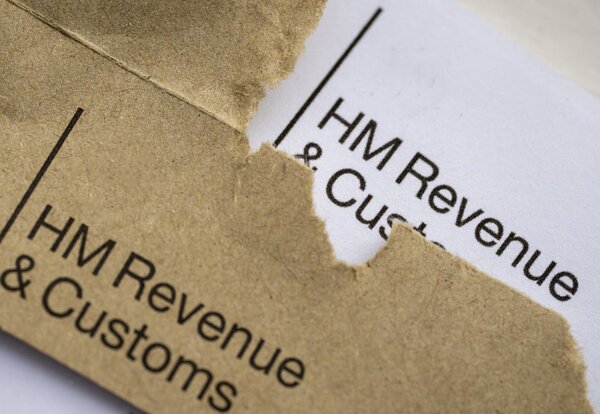What you need to know
Becoming a first-time buyer is an exciting milestone, especially for first time home buyers who often face unique challenges and questions during the process. But understanding the tax side can feel overwhelming at first. The good news is that the UK government offers specific tax breaks designed to help you get on the property ladder.
Understanding these benefits could save you thousands of pounds on your purchase. Knowing which schemes you qualify for and how to claim them puts more money in your pocket for furnishing your new home.
The UK’s first personal tax app, Pie tax, guides you through your property purchase journey step by step. Our simple tools help demystify the process, showing exactly what you’ll pay and save. Or if you’re just here to get to grips with it all, let’s break it down!
What does 'first-time buyer' actually mean for tax purposes?
To qualify as a first-time buyer for tax relief, you must never have owned residential property anywhere in the world. This includes inherited properties or those you’ve owned but never lived in.
You must be buying a property you plan to live in as your main residence. Investment properties don’t qualify for the special tax treatment offered to first-time buyers.
For joint purchases, everyone buying the property must qualify as a first-time buyer. If your partner has previously owned property but you haven’t, you won’t receive the relief.
The property must cost £625,000 or less to benefit from stamp duty relief. To qualify for certain first-time buyer benefits, the property should be purchased at or below its market value. Properties above this threshold are subject to standard rates on the entire purchase price.

Stamp Duty Land Tax relief: the biggest tax saving
The headline benefit for first-time buyers is paying less (or no) stamp duty. As of October, you pay zero stamp duty on properties up to £425,000.
For homes costing between £425,001 and £625,000, you pay a reduced rate of 5% only on the portion above £425,000. This can save you up to £11,250 compared to regular buyers.
If your dream home costs more than £625,000, you’ll pay the standard stamp duty rates on the full purchase price. The first-time buyer relief won’t apply at all in this case.
At the point of exchanging contracts, buyers become legally committed to the purchase. This is a key milestone before completion and claiming stamp duty relief.
Remember, you must claim this relief when filing your stamp duty return to HMRC. Your solicitor usually handles this, but it’s worth confirming they know you’re a first-time buyer.
Saving for your deposit: tax-efficient options
The Lifetime ISA is a brilliant option if you’re still saving. The government adds a 25% bonus on up to £4,000 saved each year, giving you a free £1,000 annually towards your deposit.
It’s important to know how much deposit you need to save, as this can influence your mortgage options, eligibility, and the terms you’re offered.
If you opened a Help to Buy ISA savings account before the scheme closed to new accounts in 2019, you can still use it. This account also offers a 25% government bonus when you buy your first home.
Both schemes have rules about the maximum property value (currently £450,000) and withdrawal conditions. Ensure your purchase qualifies before counting on the bonus.
When I was saving for my first flat in Manchester, the Lifetime ISA bonus effectively paid for all my white goods. That £1,000 government contribution made a real difference to my moving budget.
Be careful about taking money out for other purposes. The Lifetime ISA has a withdrawal penalty of 25% if you don’t use the funds for a first home or retirement.

Shared ownership and tax: a different approach
With shared ownership, you buy a share of a property (usually 25-75%) and pay rent on the rest. You have two stamp duty options to consider.
Option one: pay stamp duty just on your share. If your share costs less than £425,000, you’ll pay no stamp duty as a first-time buyer.
Option two: pay stamp duty on the full property value upfront. This might make sense if the full value is under £425,000 or if you plan to buy more shares later.
Buyers may also need to pay a mortgage valuation fee, which covers the lender's assessment of the property's worth for mortgage purposes.
When you buy more shares later (called “staircasing”), you might need to pay additional stamp duty. The rules get technical here, so getting advice from your solicitor is wise.
Hidden costs and ongoing tax considerations
Budget for Land Registry fees when you buy. These vary based on your property’s value but typically range from £100-£500.
Don’t forget about Council Tax, which starts from the day you complete your purchase. The amount varies widely depending on your property and location.
Most mortgage lenders require you to have buildings insurance in place before completion. It's important to compare insurance policies to ensure you get the best deal and adequate protection for your property.
If you plan to use part of your home for business, there might be Capital Gains Tax implications when you eventually sell. Best to get advice on this early.
Some lenders charge a mortgage arrangement fee. While not a tax, it’s another cost to factor into your budget when planning your purchase.

Common tax mistakes first-time buyers make
Missing the deadline to claim stamp duty relief is surprisingly common. You have just 14 days after completion to file your return and claim the relief.
Not taking advantage of every relevant government scheme is another missed opportunity. Check if you qualify for Help to Buy, Shared Ownership, or First Homes Scheme.
Failing to keep proof of your first-time buyer status can cause headaches later. Keep documents showing you’ve never owned property before.
Incorrect declarations on tax forms can lead to penalties. Double-check all information before submitting, especially if you’re handling the paperwork yourself.
Final Thoughts
First-time buyers have access to valuable tax breaks that can save thousands on your property purchase. Understanding what you qualify for should be an essential part of your home-buying preparation. It's also crucial to know what you can afford, taking into account your budget, expenses, and overall financial situation before starting the process.
Tax rules do change, so always check for the latest updates when you’re ready to buy. What applied to friends who bought last year might be different now.
If you’re uncertain about your eligibility or how to claim reliefs, don’t hesitate to ask your solicitor or seek professional advice. The savings are well worth the effort.

Pie tax: Simplifying First-Time Buyer Tax
Getting on the property ladder shouldn't be complicated by tax worries. The UK's first personal tax app, Pie tax, offers clear guidance on stamp duty calculations and relief eligibility.
We walk you through each step of the process, from initial budgeting to filing your stamp duty return correctly. Our app helps identify all potential tax savings for your specific situation.
Pie tax provides timely reminders for important deadlines related to your property purchase. We keep track of the latest tax rules so you don't have to worry about missing out.
Our property-specific tax assistants use simple language to explain complex tax concepts. No more tax jargon or confusion when making the biggest purchase of your life.
Explore the Pie tax app if you'd like to see how we can make your first home purchase smoother and potentially save you money along the way.











